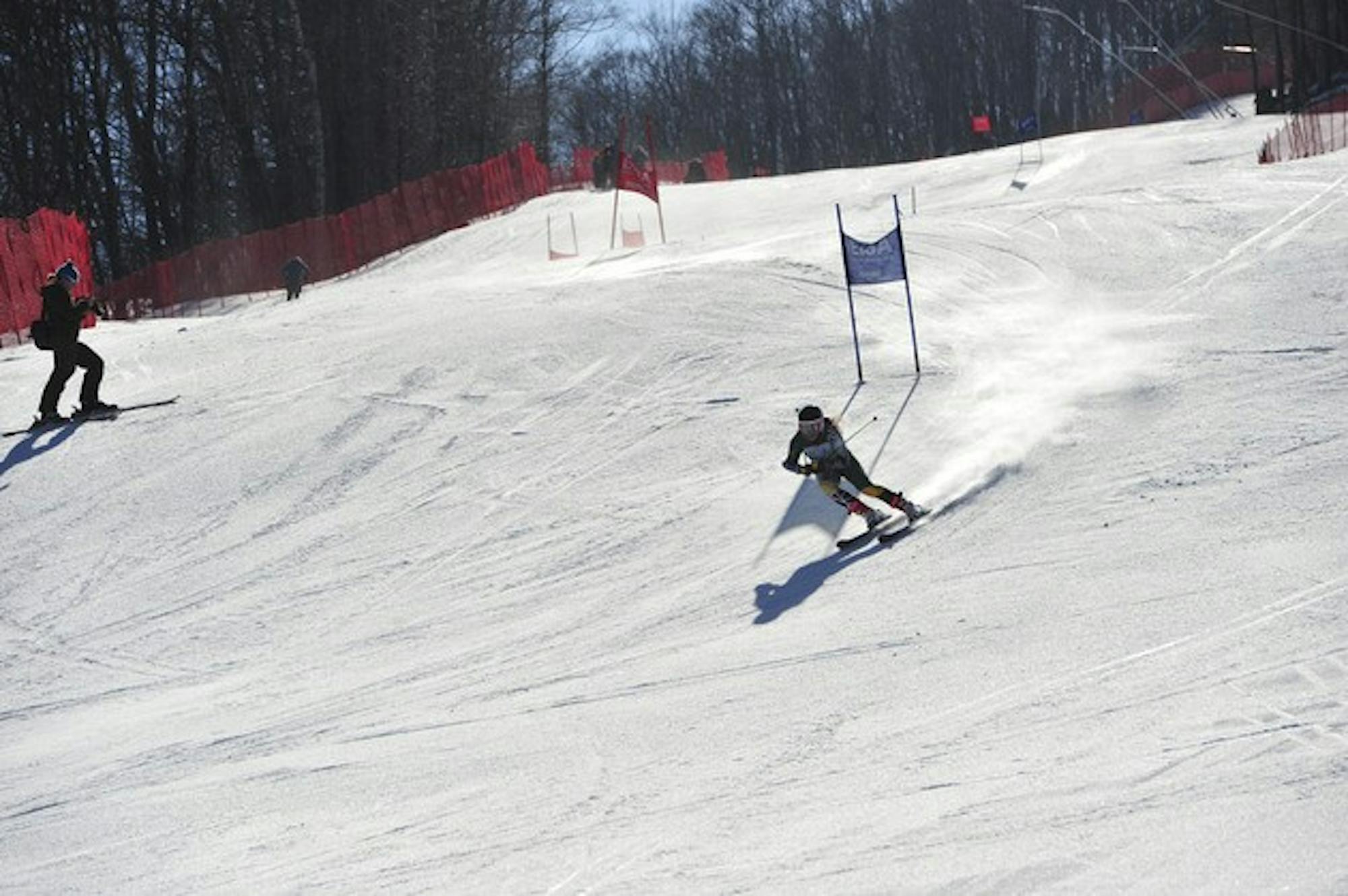The consequences of the weather have been much more severe for the Nordic skiers than for the alpine team. Because Nordic races are conducted on relatively flat ground, most courses do not have the snowmaking capabilities of ski mountains. Additonally, because Nordic courses are generally at a lower altitude than alpine courses, the snow melts more easily, leaving the Nordic courses barren and bereft of snow.
The Dartmouth team has been unable to practice at its home Oak Hill course for most of the season due to the lack of snow. The problem is not unique to Hanover, however, as the majority of schools in the Northeast are currently facing similar constraints.
The Nordic races for the Dartmouth Carnival had to be moved north to the Trapp Family Lodge in Stowe, Vt. because of the lack of snow in the Upper Valley, while the sprint races at last week's Williams Carnival were canceled for similar reasons.
Women's Nordic coach Cami Thompson said the most difficult part of the changes was not the boredom of having to race at only a few courses but having to move the Winter Carnival races away from campus.
"The biggest disappointment was having to move the Dartmouth Carnival races," she said. "It is always fun to have a bit more of a crowd each year."
Nordic skier Gordon Vermeer '12 said he tried not to let the weekly race changes bother him.
"The best attitude to have is to not get too preoccupied with the conditions and changing schedule," Vermeer said. "If you just try as hard as you can to ignore that stuff, it leads to a better result."
The Nordic team has also dealt with increased travel time due to training location changes. Instead of taking a five-minute bus ride to the Oak Hill facility, the team has been forced to either train on less-groomed trails or spend extra days at carnival sites to get additional days of training.
"It has been harder to run quality workouts when we aren't sure what we are going to have in terms of skiing," Thompson said.
This season, it has been difficult to get quality training time, and the team has spent more time on the road as a result, frequently leaving school on Thursday and not returning until Sunday, according to Vermeer. He also said that it has been most difficult for the non-carnival group who have not been able to get extra ski days and have been spending more time running and lifting than they typically would.
The team has spent much of the extra time training at the Trapp Family Lodge, located approximately 90 minutes away, which has provided them with a significant amount of advance training in preparation for this weekend's Eastern Intercollegiate Ski Association Championships, for which the Nordic events have been relocated to Trapp from Middlebury.
Annie Hart '14 said she hopes that the training will pay off, providing the host University of Vermont with less of an advantage because of the additional time Dartmouth has spent training on the course.
The poor conditions have been essentially equal for the majority of EISA teams, as it has been a winter of little snow for most of New England.
"There might be a little diversity in terms of who has access to snow, but everybody is hurting," Vermeer said.
Hart also noted that the lack of snow has not been a huge factor in the season's training and results.
"Everyone has been subjected to the same thing," she said. "Everyone has adjusted and learned how to wax for this type of snow."
Conversely, the alpine team has benefited from near-ideal conditions for downhill racing. Men's coach Peter Dodge said the lack of snow is actually been good for the team.
"With excellent snow-making at the Skiway and all other ski areas, we have had excellent training and competitions as scheduled all season," Dodge said.
The packed snow provides a solid base for the alpine ski racers, who rely on a harder course for speed rather than soft, abundant snow.
Alpine skier Abby Fucigna '15 said the alpine team has had fewer major setbacks than the Nordic team. The alpine group's main worry is whether each day will be good for training, while the Nordic group faces a bigger issue whether it will be able to ski at all.
"The quality of the training has been adjusted by taking a few more runs on good days and realizing that it might be one of the few good days of the week," Fucigna said.
The NCAA Championships are being held at Montana State University in Bozeman, Mont., an area that has had significantly more snow than New England this year, though this season ranks as a weak year for the West as well. Both teams are looking forward to the conditions as a welcome change.
Vermeer said he doesn't expect the change to be a big factor but does feel that the conditions represent "one less thing to worry about." Fucigna added that "going east to west is a lot easier than going west to east" in terms of adjusting to the quality of the snow.




